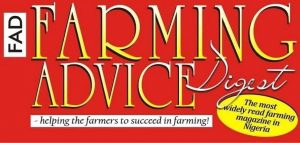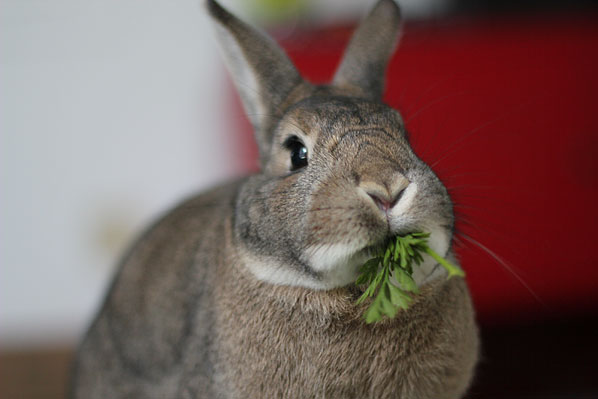Rabbit Feed Formulation In Nigeria: The Best Modern Guidelines
Rabbit feed formulation in Nigeria is very important for every rabbit farmer who wants to reduce the cost of operating hiss/her farm in Nigeria. The feeding management of rabbit is a very important aspect of rabbit farming business in Nigeria. Rabbit food in Nigeria consumes about 75% of total production cost of a rabbit farm.
The importance of rabbit feed formulation in Nigeria cannot be over emphasized due to numerous advantages for the local farmer. The very good thing about making rabbit food is that rabbit eats virtually anything from your garden, bush or forest. This has made rabbit feed formulation in Nigeria relatively easy. For the fact that rabbits are herbivorous animals, they eat different varieties of plant types, ranging from leaves to vegetables, to forage that are not consumed by humans.
Read also: rabbit hutch cleaning and maintenance guide
Rabbits being very high and effective feed converters, they convert the forage to meat, wool, and/or fur in order to meet our demands. There are common grass in Nigeria to feed rabbit; including eat peels, weeds, banana, pineapple corns, vines from pulses, leaves, carrots, cabbage, lettuce etc. Make no mistake, you can feed your rabbits all these common grasses in Nigeria but it can never fulfill all the nutritional requirements of rabbit.
This brings us to the importance of rabbit feed formulation. As a rabbit farmer that is considering rabbit feed formulation in Nigeria, you must understand everything about:
 Learn More
Learn MoreRabbit feed formulation
The ingredients needed in rabbit pellets
Rabbit feed ingredients
Feeding management of rabbit
Rabbit pellet formation
Feed composition for rabbit
Making rabbit food
If you are considering rabbit feed formulation in Nigeria and you still know nothing about the aforementioned points, then you are still far behind. An ideal feed composition for rabbit should contain 12% – 18% crude protein, 7% minerals, 14% fiber, and 2700 kilo calorie of metabolic energy. If you know that rabbit feed formulation will pose a big challenge to your agribusiness, there are standard rabbit pellet formulation that you can always buy from the market.
Read also: Rabbit Production review
The Feed Requirements Of Rabbit
In rabbit feed formulation, you have to consider the age and productive performance of the rabbit. The feed composition for rabbit must be formulated in order to meet the needs of the rabbit of a particular age or productive stage. This is done in order to obtain an effective feeding efficiency. It is advisable that rabbit farmers in Nigeria should adopt at least two diets. These diets include a grower diet for the fryers and a lactation diet for the does.
a. Nutritional Requirement For Growth
Creep diets are fed to baby rabbits in order to increase their growth rate. Over the years, it has been observed that the kits (baby rabbits) are capable of a better growth rate even without this creep diet. At the moment, creep diet is not economical due to its high cost of formulation and production.
b. Nutritional Requirements At Weaning
Weaning is that stage in the life of a young animal that its food changes from milk to solid feed. In rabbit feed formulation in Nigeria, especially when it concerns weaned rabbits, their feed composition should be high in fiber and low in starch. After two weeks, the feed composition for such a rabbit changes to high starch diet because has developed the capacity to digest starch. To get the maximum production efficiency out of your rabbits, you have to provide them with a palatable high-fiber diet at weaning. You can then switch to a high carbohydrate food after a period of two weeks.
c. Nutritional Requirements During Gestation/Lactation
At the lactation period, rabbits have a higher requirement for proteins, calcium, phosphorus, and energy. At this stage, the doe requires at least 18% crude protein. When it comes to the rabbit feed formulation or does in gestation or lactation period, below is the feed composition of rabbit in this categories.
Soybean meal———————————— 14%
Fat————————————————- 1.5%
Molasses—————————————— 3%
Alfalfa meal————————————– 40%
Ground barley———————————— 20.25%
Wheat mill run———————————– 20%
Dicalcium phosphate————————— 1%
Salt———————————————— 0.5%
d. Complementary Rabbit Diets
If you are into small scale rabbit farming in Nigeria, you can consider feeding your rabbits with hay or green leaves or vegetables. Afterwards, you can supplement with a restricted quantity of high protein concentrate, and energy.
The Feeding Plan For The Different Categories Of Rabbits
When venturing into rabbit feed formulation in Nigeria, you must also consider the different categories of rabbits. You should have a feeding schedule or them as well. For the bucks that have an average weight o 4 – 5 kg, you can feed them with 100 g and 600 g of concentrates green grass respectively per day. For the does that have an average body weight of 4 – 5 kg, the rabbit feed formulation should be composed of 150 g and 600 g of concentrates and green grass respectively per day. The lactating does should be fed with 200 g and 700 g of concentrates and green grass respectively on daily basis. The weaners (6 weeks old), you give them 50 g of concentrates and 200 g of green grass on daily basis.
Note that rabbits need adequate supply of clean water because they drink approximately 10 ml/100 g body weight on daily basis. If lactating, the rabbit consumes about 90 ml/100 g body weight.
Read also: Boosting rabbit farm productivity and profits
Important Considerations In The Feeding Management Of Rabbit
- Resting does and bucks may afford minimum requirements of 50% of both legumes and grasses
- You should add water to moisten the feed slightly in order to prevent the dustiness o the mash
- After kindling, does may not require heavy diets
- You must avoid abrupt change in the quantity and quality of rabbit feed ingredients during rabbit feed formulation in Nigeria.
- After 6 – 7 days of kindling, you may increase the feed of the does.
- You must note that diets which are high in calcium have the potential to interfere with the acceptance of the litters by their mother.
- Good succulent feeds like carrots, greens grasses, spinach, etc may also be fed to the rabbits.
- To increase the acceptability of the food by rabbits, molasses may be added at the rate of 5%
- You must make clean water available at all times for the rabbits.
- You can feed you lactating does and growing rabbits free of choice by making sure there is grain or pellets in the feeder at all times.
- Rabbit feed formulation in Nigeria is a very good business venture for the entrepreneurs and investors that want to go into commercial formulation and production of rabbit feed in Nigeria. For your professional and well detailed business plan contact us on +2347037281050. At entrepreneur Nigeria, we deliver the best within 2 weeks of your order.
For more information and updates join our WhatsApp group HERE
Follow us on Twitter Here











